
5 Trends in Waste Management you (probably) haven’t heard of.
13-SEP-2024
The MENA region is rapidly advancing in waste management innovations, tackling two challenges at once: rapid urbanization and high expectations. Governments and the private sector alike are experimenting with and embracing cutting-edge technologies and sustainable practices to improve waste management systems. From waste-to-energy projects to AI-powered recycling, MENA is emerging as a global leader in waste management. Here are five trends we’ve collected for you today, so let’s get granular.
One of the most significant trends is the growing adoption of waste-to-energy (WTE) solutions. Dubai’s Refuse-Derived Fuel (RDF) plant is a brilliant example, converting municipal solid waste into fuel to power industrial processes. Processing 1.9 million tons of waste annually, the plant supports local cement industries and reduces the volume of waste sent to landfills. Similarly, Egypt is also making strides with its WTE projects, including Cairo’s pilot facilities, which help address the country’s waste crisis by turning waste into clean energy.
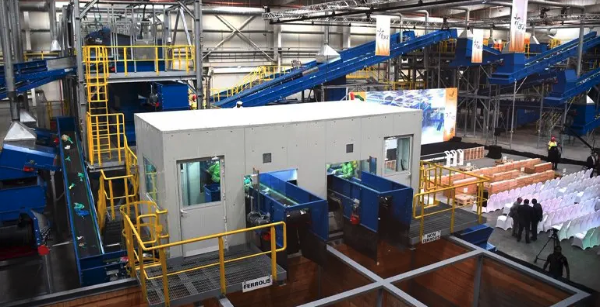
Dulsco’s RDF facility in Dubai. Credit: Dulsco
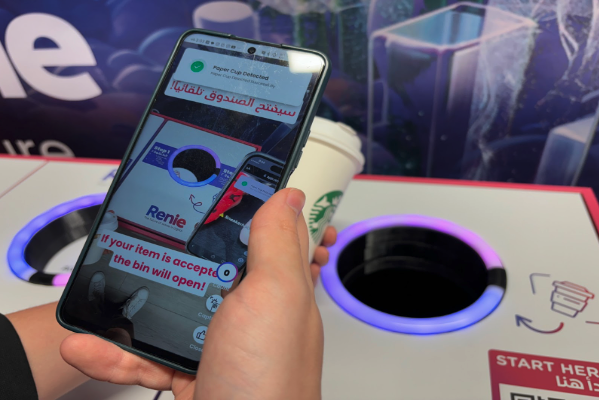
Renie’s AI waste recognition. Credit: Renie
Artificial intelligence (AI) is transforming how waste is recycled in the region by automating the sorting process. In the UAE, Renie has developed smart bins that identify different types of waste and open the correct compartment, ensuring segregation at the source. In Saudi Arabia, the government is also investing in AI-based waste management initiatives, such as the National Waste Management Center’s project in Riyadh, which aims to create a smarter, more sustainable system for separating and recycling waste. These systems can sort materials at high speed, reducing contamination in recycling streams and significantly improving recycling rates.
The circular economy is not a new idea, but its application is growing due to scaled technologies (like computer recognition) and the influence of social media. In a circular economy, waste materials are repurposed, reused, or recycled to extend their lifecycle.
Some examples include Egyptian startup Baramoda, which has found a way to turn agricultural waste into organic fertilizers, and Jordanian startup GreenJo, which creates circular solutions for food waste, repurposing it into biogas and organic compost, which is used to power local homes and businesses.
This trend reduces the environmental impact of waste, turning what is considered a burden into a valuable resource. It also decreases the pressure on landfills, as less non-recyclable waste ends up there.
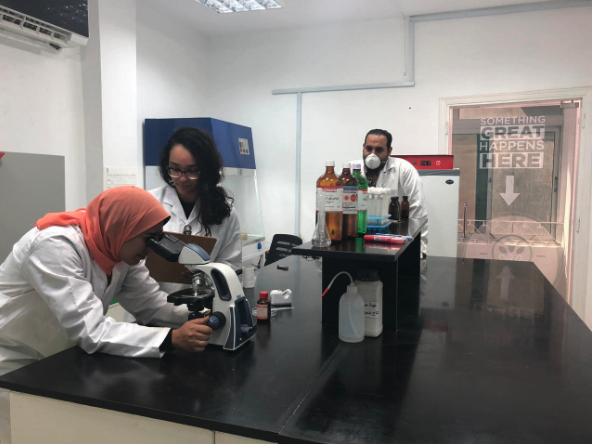
Baramoda laboratory. Credit: Baramoda
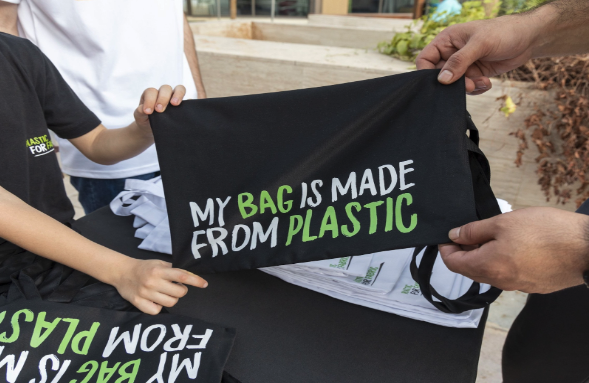
Bag produced from DGRADE material GreenSpun. Credit: DGRADE
The battle against plastic pollution continues across the MENA region, with solutions and laws emerging to reduce plastic waste.
In Morocco and the UAE, governments have banned or regulated the use of single-use plastic bags, encouraging businesses and citizens to switch to sustainable alternatives. Alongside government initiatives, the private sector is also stepping in. Dubai-based DGrade, a company specializing in plastic recycling, transforms plastic bottles into clothing and other products. Their “Simply Bottles” program focuses on collecting plastic waste from schools, offices, and communities in the UAE, converting it into polyester yarn for the production of eco-friendly textiles. These efforts are helping to curb plastic waste while promoting sustainable business practices and consumer awareness.
For example, Renie’s smart bins track the type and quantity of waste deposited, offering users real-time insights into their recycling habits via a web-based app. This transparency fosters a deeper sense of responsibility among users and helps cities achieve their sustainability goals by optimizing waste collection routes and reducing contamination. As the demand for transparency grows, more cities are likely to adopt smart waste systems that rely on real-time data and analytics.
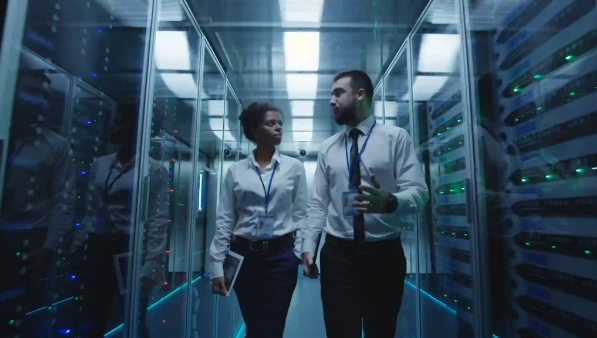
Khanza and Beeah Group joint venture to bring Sharjah its first industry-level tier 3 data center. Credit: Khazna
Liked the article? Make sure to subscribe to our LinkedIn and follow our socials!
1. Dubai Municipality. (2023). Refuse-Derived Fuel plant and waste-to-energy projects.
2. GreenJo. (2023). Circular economy and food waste solutions in Jordan.
3. DGrade. (2023). Plastic recycling and sustainable fashion in Dubai.
4. Renie. (2023). Smart bins and transparent waste management systems in the UAE.